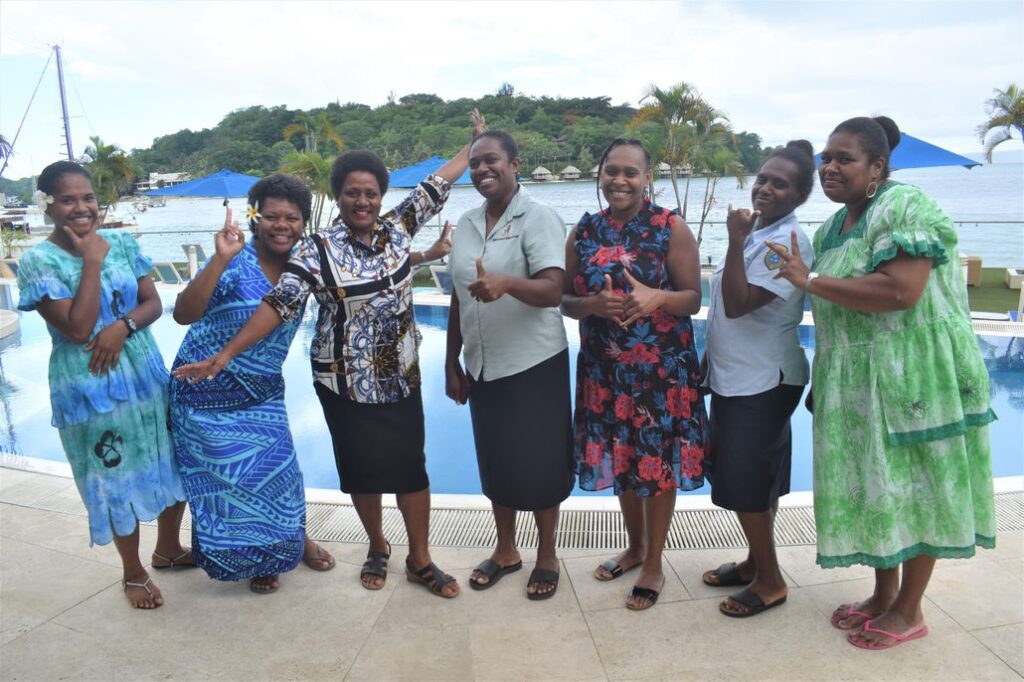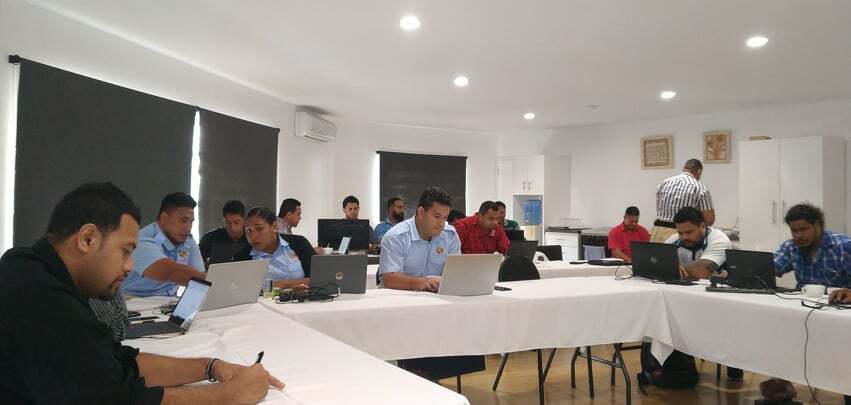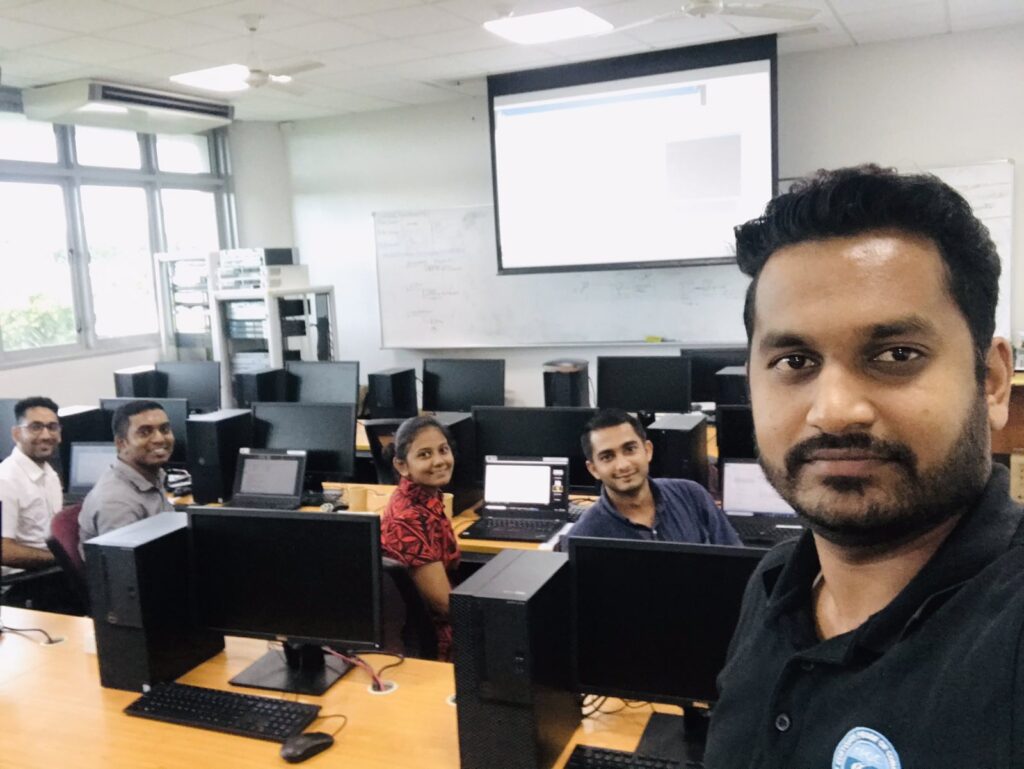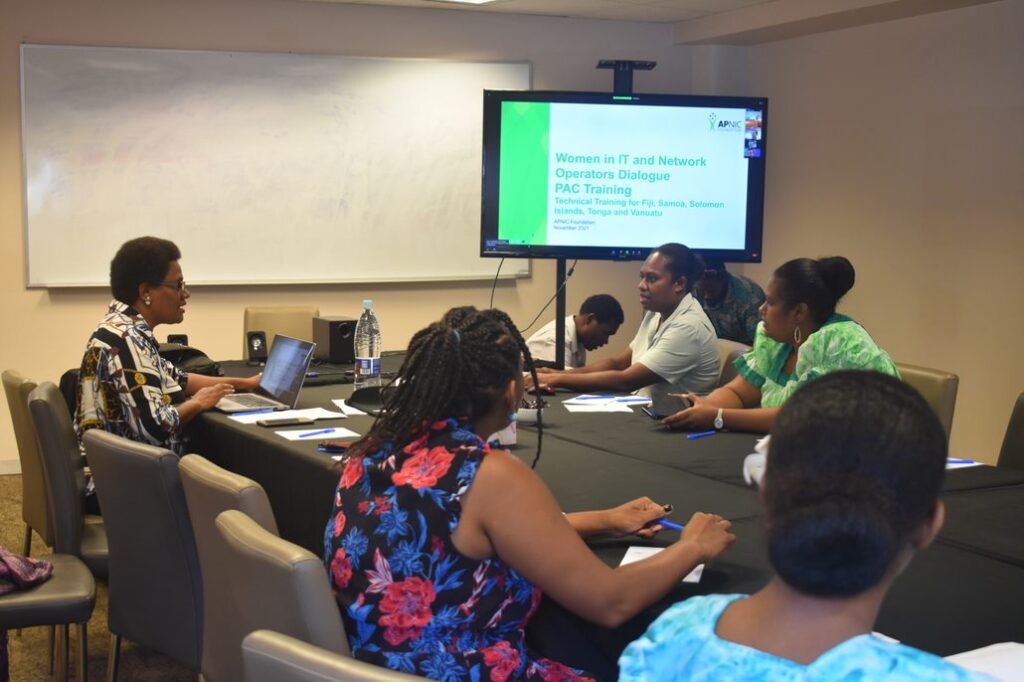Foundation Projects
PACTRAINING: Supporting efficient Internet connectivity (Pacific)
APNIC Foundation
The Supporting Efficient Connectivity in the Pacific project, or PacTraining, was designed to help boost skills in the technical community in Fiji, Samoa, Solomon Islands, Tonga and Vanuatu. Funded by Australia’s Cyber and Critical Technology Cooperation Program, the project ran from September 2019 to November 2021.

Recent submarine cable developments have made technical training more relevant than ever. The goal of the project was to build the skills of network operators in the region through workshops conducted by APNIC, each lasting from three to five days. These were supported by the online technical content available from the APNIC Academy.

A scoping study showed a preference for face-to-face training over online-only training. What participants wanted most of all, though, was a flexible approach that included both elements working together. A blended approach was adopted in which face-to-face classes combined with online training and access to
virtual labs, where participants could test their ideas on a virtual network without risking service interruptions.
Based on the topics that participants said they needed, six areas of study were chosen, all of which could be delivered by trainers using resources from the APNIC Academy: network security, MultiProtocol Label Switching (MPLS), IPv6, DNS, routing and Network Monitoring and Management (NMM).

These courses were not the end of the learning journey. The project supported APNIC Academy as it developed ‘Advanced Learning Pathways’ to guide participants on how they can continue to learn.
Just as training was about to commence, COVID-19 arrived. Outbreaks closed borders and halted travel, making face-to-face training no longer an option. The training plan had to be changed to a fully online approach.
While the first courses were delivered online, consultations had revealed a preference for face-to-face contact, so a new hybrid approach was developed for some of the courses. Hybrid classes allowed the participants to get together in groups if they were in the same place in a Pacific island nation, while the trainers delivered the course from Australia. This was useful for group activities and for building connections among network professionals. In one case in Fiji, to accommodate a bigger geographical area and more participants, there were two classroom locations.
“Some technical topics need labs that are full-scale topology of a typical network. Where all the colleagues are together it helps to collaborate and understand the concepts and workings of the technology better. In these pandemic times, such hybrid training gives an opportunity to meet colleagues with similar areas of interest.”
- Participant, Fiji
Relatively low representation of women in the Pacific technical community was another challenge faced by the project. In response, it extended learning opportunities to women active in regional groups of women in IT and others who did not attend the original course. Two discussion events using the hybrid format proved useful to better understand the challenges women face in a male-dominated industry and expand their support networks.

For funding information, see the relevant annual reports.
Related:
- Annual Report 2019
- Annual Report 2020
- Annual Report 2021
- Raising cyber security capability and awareness: A secure and resilient Internet infrastructure for development in the Pacific
- Developing Tonga National CERT
- Combating cybercrime ‘safe havens’: Building a well-informed and trained cyber law enforcement community in the Pacific
- APNIC Blog: Strong start for PNG CERT
- APNIC Blog: Why does APNIC work with law enforcement agencies?
- APNIC Blog: Coordination is key to cybersecurity activities in Pacific
- APNIC Blog: Pacific communities to benefit from AUD 100,000 grant to APNIC Foundation
- APNIC Blog: PacIGF Fellows name cybersecurity as the Pacific’s next Internet challenge
- APNIC Blog: CERTs and cyber security in the Pacific


